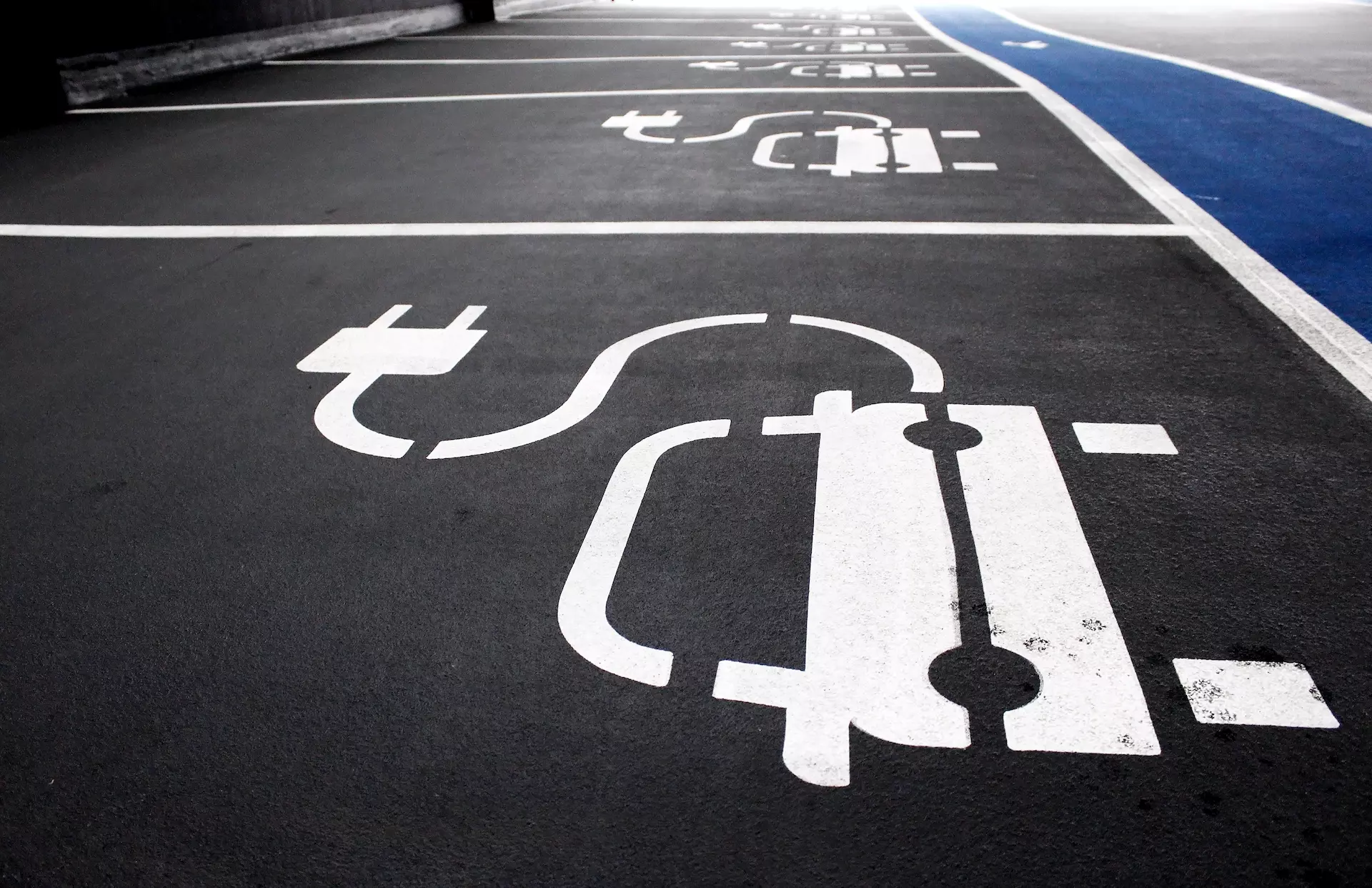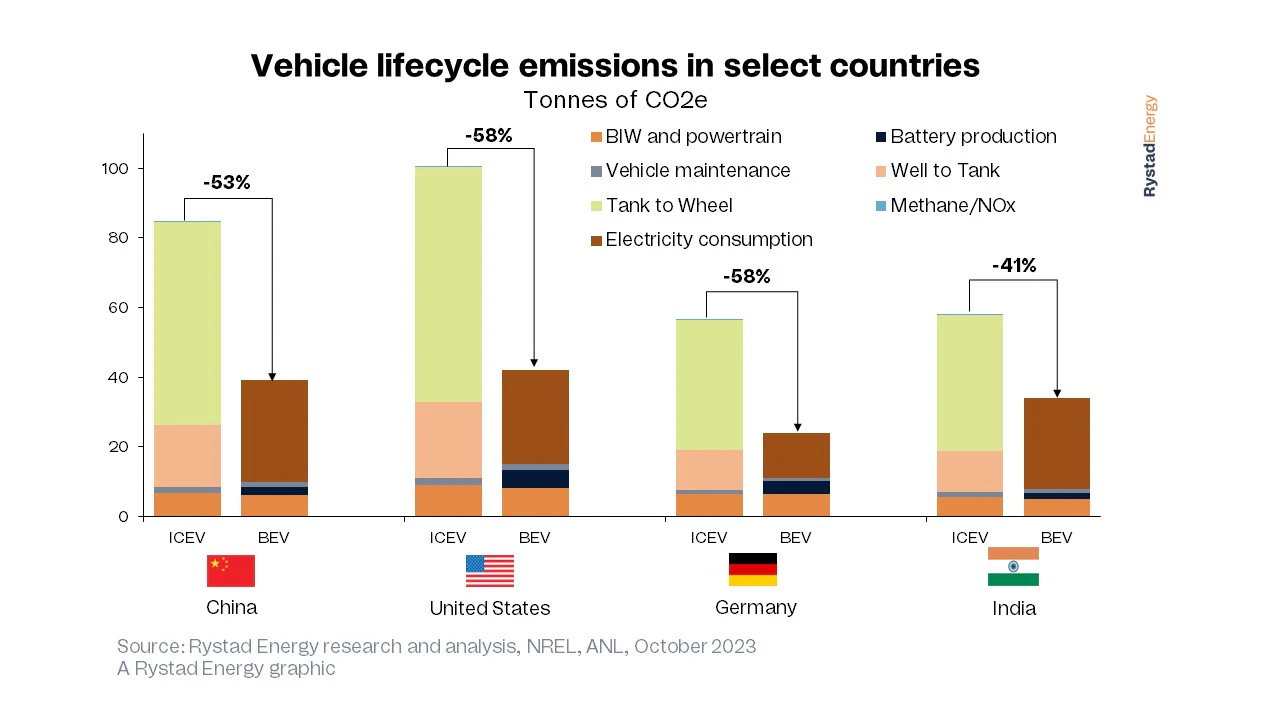- |
- Research published by the energy company Rystad energy shows how electric vehicles are more sustainable than combustion engines.
- The comparison is valid regardless of the comparison parameter adopted, from the distance traveled to the country of origin.
A'analyses of Rystad energy claims that battery electric vehicles (BEV) they are more sustainable than internal combustion engine vehicles, also considering the entire production chain and the long-term life cycle of the vehicle.Despite the higher emissions in the manufacturing process of electric vehicles, due to the materials contained in the batteries, the advantage in terms of environmental impact of BEV vehicles throughout their entire life span is unequivocal.
Rystad energy is an independent energy research company based in Oslo, Norway.His research shows how electric vehicles contribute a maximum of half of the carbon dioxide equivalent (CO2e) of diesel or petrol cars during their life cycle, regardless of the country of use.The study takes into consideration every phase of the production process and operation of the vehicle, from the bodywork to the engine (however, any social and humanitarian impacts associated with production are not considered, as the report itself admits).

Electric vehicles compared in China and the United States
Even in countries where the electricity grid is dominated by fossil fuels, battery-powered cars emit less CO2 than cars with internal combustion engines (ICE).In fact, the research involves a basic scenario in which vehicles in different contexts are considered.For example, an electric vehicle in China, over the next 20 years, will emit around 39 tonnes of CO2e compared to almost 85 tonnes from an Ice vehicle.The data is calculated at an average distance traveled of 19 thousand kilometers per year.
The difference in the United States – where the average distance traveled is 23 thousand kilometers – it is even more marked.Here, a BEV vehicle emits 42 tonnes of CO2e over its lifetime, 58 per cent less than a petrol or diesel vehicle emitting more than 100 tonnes.
In 2022, 5 million BEVs were sold in China, compared to 17 million Ice cars.Assuming that each of these BEVs emits 39 tonnes of CO2e over its lifetime and that an Ice emits 85 tonnes of CO2e, Ice sales would emit 1.4 billion tonnes of CO2e in total, while BEVs sold would add around 200 million tons of CO2e to the environment.If the same 5 million Chinese BEVs had instead been Ice, the additional emissions would have been around 430 million tonnes of CO2e.Therefore, BEVs can be said to result in a life cycle emissions reduction of 230 million tonnes of CO2e – almost 14 percent of total passenger car emissions.A similar analysis in the United States shows this figure to be equal to 25 million tonnes of CO2e.

The energy market is the key
In the case of combustion engine vehicles, emissions related to the extraction, refining and combustion of fossil fuels contribute for approximately 90 percent of the total emissions produced by the vehicle.Of course, the breakdown of emissions over the life of a battery-powered vehicle is directly tied to its electricity consumption and how that energy is generated.Considering electricity production supplied by renewable sources, emissions linked to the operation of electric vehicles would drop by 86 percent compared to ICE.
A country's energy mix will play a significant role in determining how quickly emissions reductions can be achieved when switching to BEVs.While Ice vehicles become heavier in terms of emissions as they age, BEVs will emit less over the years as energy production becomes greener.For example, in Rystad's baseline scenario of developing the U.S. electric grid, battery-powered cars will emit only 14 percent of the equivalent emissions of a gasoline or diesel car in 2041.
“Overall, battery electric vehicles are clearly the right technology to reduce emissions in the transportation sector.Switching to a Bev will reduce emissions in the long term despite a greater environmental impact at the beginning of the vehicle's life", is the comment of Abhishek Murali, analyst at Rystad energy.In short, electric vehicles are the vehicles of energy transition.
